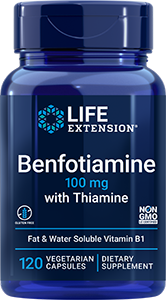- Science & Research
- Science News
- Newsletter
- 2007
- December 21

Newsletter
Newsletter
Wake up and smell the coffee
 | ||||||||||||||||||||||||||||||
| ||||||||||||||||||||||||||||||
| ||||||||||||||||||||||||||||||
| Life Extension Update Exclusive Wake up and smell the coffee A forthcoming article in the British Journal of Nutrition, published online on December 6, 2007, reported the finding of Finnish researchers that an increased intake of coffee is associated with lower mortality over a 14.5 year period. Dr Pertti Happonen and associates evaluated data from 311 men and 506 women born during or before 1920 who were part of a large study intended to evaluate falls in older individuals. Physical examinations were conducted upon enrollment between 1991 and 1992, and questionnaires were completed concerning smoking status, the presence of diabetes, amount of coffee intake, and other information. A second questionnaire was completed two to three years later. The participants were followed for mortality through 2005. Over the follow-up period, 251 deaths occurred among the men, and 372 among women. For total mortality from all causes, and mortality from cardiovascular disease, cancer, and other or unknown causes, there was an association observed between the number of cups of coffee consumed and a decrease in the risk of death. Compared with drinking one to two cups coffee per day, each added cup lowered the risk of mortality by an average of 4 percent. When the follow-up period was divided into five year periods, the strength of coffee’s effect appeared to diminish during the final years of the study, although the researchers add that there was not enough evidence to conclude a constant linear decrease. In an attempt to provide possible mechanisms for the finding, the authors list several diseases shown to be inversely associated with coffee intake, including Alzheimer’s disease, breast and colorectal cancer, asthma, and diabetes. They note that increased antioxidant capacity is one of coffee’s potential mechanisms against disease, and remark that the polyphenols in coffee are the greatest source of antioxidants in the diet of the Nordic population studied in this research. The effects of caffeine, as well, may have an impact on total mortality. “The present study in a representative sample of older adults strengthens the findings in some previous studies among middle-aged individuals of a beneficial effect of moderate or heavy coffee consumption on the risk of death,” the authors conclude. “We expect results from more detailed studies in larger study populations to provide more insight about the advantages and disadvantages of coffee consumption, and to set critical recommendations of optimal consumption with regard to health.” Before insulin, botanical medicines were used to treat diabetes. They are remarkably safe and effective. However, because many botanical medicines function similarly to insulin, people taking oral diabetes medications or insulin should use caution to avoid hypoglycemia. Botanical medicines should be integrated into a regimen of adequate exercise, healthy eating, nutritional supplements, and medical support. Coffee berry contains some well-studied phytochemicals such as chlorogenic acid, caffeic acid, ferulic acid, and quinic acid (Charles-Bernard M et al 2005). Some of coffee berry’s most impressive effects can be seen in blood glucose management. Chlorogenic acid and caffeic acid are the two primary nutrients in coffee that benefit individuals with high blood sugar. Glucose-6-phosphatase is an enzyme crucial to the regulation of blood sugar. Since glucose generation from glycogen stored in the liver is often overactive in people with high blood sugar (Basu R et al 2005), reducing the activity of the glucose-6-phosphatase enzyme leads to reduced blood sugar levels, with consequent clinical improvements. Chlorogenic acid has been shown to inhibit the glucose-6-phosphatase enzyme in a dose-dependent manner, resulting in reduced glucose production (Hemmerle H et al 1997). In a trial at the Moscow Modern Medical Center, 75 healthy volunteers were given either 90 mg chlorogenic acid daily or a placebo. Blood glucose levels of the chlorogenic acid group were 15 percent to 20 percent lower than those of the placebo group (Abidoff MT 1999). Chlorogenic acid also has an antagonistic effect on glucose transport, decreasing the intestinal absorption rate of glucose (Johnston KL et al 2003), which may help reduce blood insulin levels and minimize fat storage. Featured Products Second Annual Life Extension CruiseOur first cruise was so successful that we decided to offer another one in 2008! Attendees told us they were able to learn a lot about the latest in integrative therapies and antiaging research and at the same time have plenty of fun aboard the cruise ship. This time we will cruise the splendor of the Alaskan wilderness aboard Celebrity’s sumptuous Infinity. You’ll enjoy our Life Extension seminars, one-on-one consultations, a welcome aboard cocktail reception, exceptional personal service, award-winning cuisine, world-famous amenities, accommodations that are the most spacious at sea, and much more. The second Life Extension Seminar at Sea will be a 7-night cruise on August 29, 2008. Special features for Life Extension Members:
Book by January 31, 2008, and receive an exceptional value coupon book with $200 in onboard savings. For reservations or for more information please call Life Extension Vacations at 800-791-4457 or email reservations@levacations.com. We are looking forward to seeing you onboard! | ||||||||||||||||||||||||||||||
If you have questions or comments concerning this issue or past issues of Life Extension Update, send them to ddye@lifeextension.com or call 967 202 7716. For longer life,  Dayna Dye Sign up for Life Extension Update at News Subscription Help spread the good news about living longer and healthier. Forward this email to a friend! View previous issues of Life Extension Update in the Newsletter Archive. | ||||||||||||||||||||||||||||||
The latest news on aging, nutrition, and vitamins
Lab
Testing
How Life Extension lab testing works

